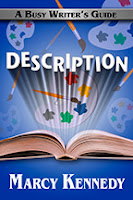Part of the Indie Author Series
Last month I started a series on advertising as an independent author. (If you missed it, I suggest you read The Basics of Advertising for Indie Authors first.)
In that post, I said that my basic premise for the series was that we wanted to earn back at least as much as we invest in our advertising. There are times, though, when it is okay to lose money on our ads (at least in my opinion). The key to losing money while still considering the ad a success is to have a strategy. We want to lose money in the short term in order to make a long-term gain.
So, today, I’m going to look at the times when we might show a loss on our ad but still consider it a win for our career.
During Release Week
Whether we’re releasing our book at full price or doing a 99-cent roll out, release week is a time when it’s reasonable to be willing to take a loss on our ads for two reasons.
Our best chance at ranking high on the retailers (especially Amazon) comes shortly after our book releases because, in most cases, this is when we’ll make a lot of sales in a short period of time. If we’re not already a big name with a big list, or if we’re in a highly competitive genre, sales from our established readers might not be enough to hit a list. Every sale we can make pushes us higher in the rankings and exposes us to more new potential buyers. Even if it doesn’t look like we’re making a positive return on investment with our ads through direct sales, the increased visibility helps offset the cost. The higher we are in the rankings, the more sales we’ll likely make. It’s a self-fulfilling prophecy in a way—successful books stay successful because they’re successful and seen by more people.
The other reason taking a loss on ads during release week can be worthwhile applies mostly to Amazon. When a book seems to be selling well, Amazon’s algorithms will take over and show that book to more people. In other words, the more sales we can generate, the more likely Amazon will “help” us market our book.
Reader Magnets
A reader magnet is something we give away in order to entice readers to subscribe to our mailing list. (I’ve written about them in more detail in Building a Mailing List through Reader Magnets.)
There are many ways we can tell people about our reader magnet, but one is through ads. Because reader magnets are free, any ad we run on them will be a loss.
At first.
We’re running an ad to give away a free book, but we’re hoping that the people who receive that free book will go on to buy our other books. Moreover, we now have their email address and can tell them about every book we release from that point on. We’re hoping to gain a lifetime reader who will be much more valuable to us over the course of our career than the small amount of money we lost on running the initial ads on the reader magnet.
First-in-Series Free Books
I put this right after reader magnets because it’s a similar situation. Buying ads for a first-in-series free book is an upfront loss, but we’re playing a long game. We’re betting that enough people who download the free book will go on to read the rest of the series that it’ll be a net gain for us overall.
The downside of running these types of ads as compared to ads on a reader magnet is we aren’t also building our list.
Sales on Boxed Sets
When we run a sale on a box set and advertise that reduced price, it’s possible that we’ll lose money on the ad cost itself. If we’re not in KDP Select, we’ll make about 30 cents off a 99-cent book. If we’re in KDP Select and running a countdown deal, we’ll still make only about 70 cents. Those low numbers mean it’s difficult to earn back what we invest in an add on a discounted box set, especially when we consider that we’re basically selling three books—not just one—for 99 cents.
Like advertising a reader magnet or a first-in-series free book, though, we’re banking on hooking people on our series through the box set. (I’ve talked more about the benefits of box sets in Creating Single-Author Box Sets.)
Sales on boxed sets work best if you have at least three full-priced books in the series after the box set.
Have you taken a loss on ads with a strategy in mind? Did it work out? Is it something you’d do again?
 Marcy Kennedy is a mystery and speculative fiction writer who believes fantasy is more real than you think. Alongside her own writing, Marcy works as a freelance fiction editor and teaches classes on craft and social media. She’s also the author of the Busy Writer’s Guides series of books. You can find her blogging about writing and about the place where real life meets science fiction, fantasy, and myth at marcykennedy.com.
Marcy Kennedy is a mystery and speculative fiction writer who believes fantasy is more real than you think. Alongside her own writing, Marcy works as a freelance fiction editor and teaches classes on craft and social media. She’s also the author of the Busy Writer’s Guides series of books. You can find her blogging about writing and about the place where real life meets science fiction, fantasy, and myth at marcykennedy.com. Blog | Facebook | Twitter | Amazon | Apple iBooks | Barnes & Noble
About Description
 Description in fiction shouldn’t be boring for the reader or for the writer.
Description in fiction shouldn’t be boring for the reader or for the writer. Description: A Busy Writer’s Guide will help you take your writing to the next level by exchanging ho-hum description for description that’s compelling and will bring your story to life, regardless of the genre you write.
In Description: A Busy Writer’s Guide, you will
- find the answer to the age-old question of how much description is too much;
- learn how to use point of view to keep description fresh;
- recognize the red flags for boring description in fiction;
- explore how to use all five senses to bring your descriptions to life for the reader;
- discover the ways metaphors and similes can add power to your descriptive writing;
- gain the tools needed to describe setting, characters, and action in engaging ways;
- learn how descriptions can add conflict, enhance the theme, and amp up emotion; and
- much more.


I follow the practice of investing royalties from previous books in the production and launch advertising of a new one. That's almost always a loss, because I run in the red that way. I don't have to make a living at this, but I'd like to recover costs. Maybe I shouldn't write the next book...or not write so fast?
ReplyDeleter/Steve